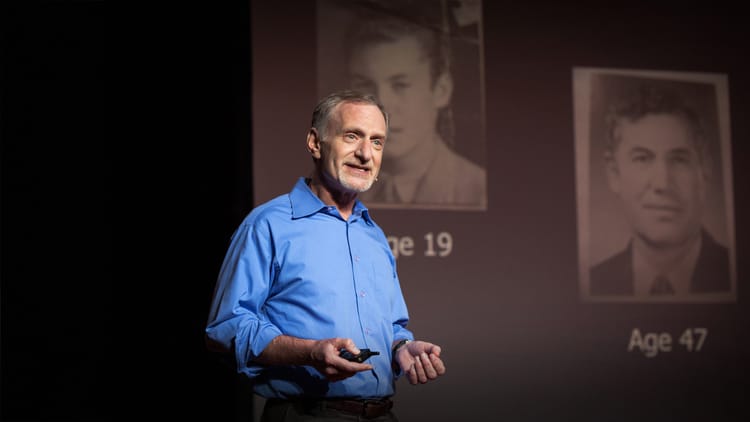“What Makes a Good Life? Lessons From the Longest Study on Happiness” by Robert Waldinger
• public
Table of contents
Robert Waldinger shares insights from the longest study on happiness, the Harvard Study of Adult Development. The study followed the lives of individuals for over 75 years, revealing that good relationships and strong social connections are the key to a fulfilling and happy life. Waldinger emphasizes that investing in meaningful relationships, rather than material wealth or achievements, is what truly matters for long-term happiness and well-being.
For Key Ideas, Questions and Quotes from this talk, you can scroll below.
Robert Waldinger gave this speech at the TED Conference. All rights to the speech and the video above belong to TED.
About Robert Waldinger
Robert J. Waldinger is an American psychiatrist, psychoanalyst, and Zen priest. He is a part-time professor of psychiatry at Harvard Medical School and directs the Harvard Study of Adult Development, one of the longest-running studies of adult life ever conducted. (Source: Wikipedia)
Key Ideas From Talk
Many of us have a lot of ideas about how to be happy. Most of us believe that experiences such as success and fame will make us happy. We chase after what we believe in. But is the key to happiness really in these things?
Robert Waldinger shares the results of a quite long - about 75 years - study that gives a clear answer to this question. They followed the lives of a group of people from their 19s to their 90s and collected all the data to find an answer to this question. A simple and effective answer emerged. You can some meaningful ideas here;
- Loneliness can have a negative impact: The research shows that loneliness and social isolation can harm our health and happiness. Feeling lonely can increase the risk of various physical and mental health problems like cardiovascular issues, depression, and cognitive decline. It's important to have social connections and engage in activities that encourage social interaction to combat loneliness.
- Good relationships can protect our health: The study shows that having supportive relationships and a strong social network can protect our physical and mental health. When faced with stressful situations, individuals with nurturing relationships experience lower levels of stress and have better coping mechanisms. Positive social connections contribute to better immune function, lower rates of chronic diseases, and overall better health outcomes.
- Focus on quality, not quantity: The study challenges the idea that having many social connections leads to happiness. Instead, the focus should be on developing deep and meaningful relationships characterized by emotional intimacy, trust, and genuine connection. Close relationships where individuals can be vulnerable, share their joys and sorrows, and feel understood and supported have a more profound impact on well-being than superficial connections.
- Invest in relationships: The research highlights the importance of actively investing time and effort in building and maintaining strong relationships. It requires cultivating empathy, effective communication, and being present for others. Taking the time to nurture and deepen these connections is a worthwhile investment that can lead to long-term happiness, personal growth, and a sense of fulfillment in our lives.
Questions to Ask Ourselves
These questions can help us reflect on our priorities and make choices that will lead to a more fulfilling and satisfying life.
- What keeps us healthy and happy as we go through life? If you were going to invest now in your future best self, where would you put your time and your energy?
- What are my most important life goals?
- Am I prioritizing material wealth and fame over other aspects of life?
- What keeps me happy and healthy?
- Am I investing enough time and effort into building and maintaining meaningful relationships?
- Am I focusing on the quality of my relationships, rather than the quantity?
- Am I actively nurturing and deepening my connections with others?
- Am I cultivating empathy, effective communication, and being present for others?
- Am I making choices that will lead to long-term happiness, personal growth, and a sense of fulfillment in my life?
- Am I aware of my psychological immune system and my capacity to synthesize happiness?
Notes From Talk
Related List and Guide
This talk is a part of following list: "Talks That Changed My Perspective".
